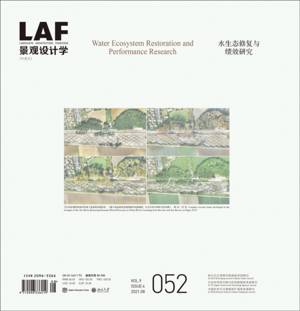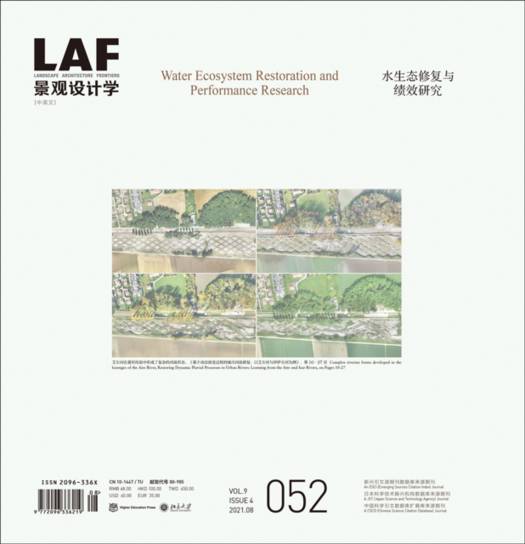
Bedankt voor het vertrouwen het afgelopen jaar! Om jou te bedanken bieden we GRATIS verzending (in België) aan op alles gedurende de hele maand januari.
- Afhalen na 1 uur in een winkel met voorraad
- Gratis thuislevering in België
- Ruim aanbod met 7 miljoen producten
Bedankt voor het vertrouwen het afgelopen jaar! Om jou te bedanken bieden we GRATIS verzending (in België) aan op alles gedurende de hele maand januari.
- Afhalen na 1 uur in een winkel met voorraad
- Gratis thuislevering in België
- Ruim aanbod met 7 miljoen producten
Zoeken
Landscape Architecture Frontiers 052
Water Ecosystem Restoration and Performance Research
Kongjian Yu, G. Mathias Kondolf, Ying Long, Nian She, Yingxia Xie, Lian Tao, Guoping Huang
€ 51,95
+ 103 punten
Omschrijving
As the key to sustaining health of river basins and improving livability for a city, water ecosystem can provide rich ecosystem services supporting human well-beings. However, traditional techniques of gray engineering have resulted in negative impact on water ecosystems, directly or indirectly, exacerbating problems such as water shortage, water body pollution, water ecological damage, and water culture loss. Scholars attach more and more importance to the research on water ecosystem restoration based on a holistic perspective. Water ecosystem restoration theories have also seen a development from structural studies on rivers, lakes, and wetlands towards holism studies on water ecosystems by exploring related impact factors, restoration processes, scales, mechanisms, and models. In turn, associated restoration practices provide evidences for further theoretical exploration, among which nature-based approaches to water ecosystem restoration has become important measures to respond to the complex challenges of natural-social-economic systems and to enhance the overall water ecosystem services. At present, scholars have worked on extracting restoration modes, patterns, and techniques from traditional ecological wisdom (e.g., traditional agricultural terraces and dike-ponds) for contemporary practices, which have witnessed sound ecological and social performance. However, under pressures of intensified climate change and the increasing need for water resource utilization, research on the related responses and performance of water ecosystem at different scales remains insufficient. The goals and methods of water ecosystem restoration are often unclear, and long-term monitoring or evaluation of restoration performance is also inadequate. In this issue, LA Frontiers focuses on: 1) Exploring nature-based water ecosystem restoration theories rooted in locality; 2) Studying the adaptive mechanisms, key design parameters, and ecosystem services of traditional ecological wisdom; 3) Combining traditional ecological approaches with contemporary water ecosystem restoration technologies, and the methods, practice processes, and optimization mechanisms of enhanced design; And 4) the research on the analysis, test, and evaluation of water ecosystem restoration performance of nature-based approaches at different scales. Water ecosystem restoration requires a dynamic and complex nonlinear workflow, which faces many problems and challenges. This issue, by presenting latest research and cutting-edge practice cases worldwide, is expected to introduce nature-based water ecosystem restoration insights and methods which are rooted in locality and can enhance restoration performance, and new measures for performance research and operation test, so as to inspire new research and practice for urban and rural water ecosystem restoration and sustainability.
Specificaties
Betrokkenen
- Auteur(s):
- Uitgeverij:
Inhoud
- Aantal bladzijden:
- 138
- Taal:
- Engels
- Reeks:
Eigenschappen
- Productcode (EAN):
- 9781954081994
- Verschijningsdatum:
- 10/01/2022
- Uitvoering:
- Paperback
- Formaat:
- Trade paperback (VS)
- Afmetingen:
- 279 mm x 287 mm
- Gewicht:
- 612 g

Alleen bij Standaard Boekhandel
+ 103 punten op je klantenkaart van Standaard Boekhandel
Beoordelingen
We publiceren alleen reviews die voldoen aan de voorwaarden voor reviews. Bekijk onze voorwaarden voor reviews.












